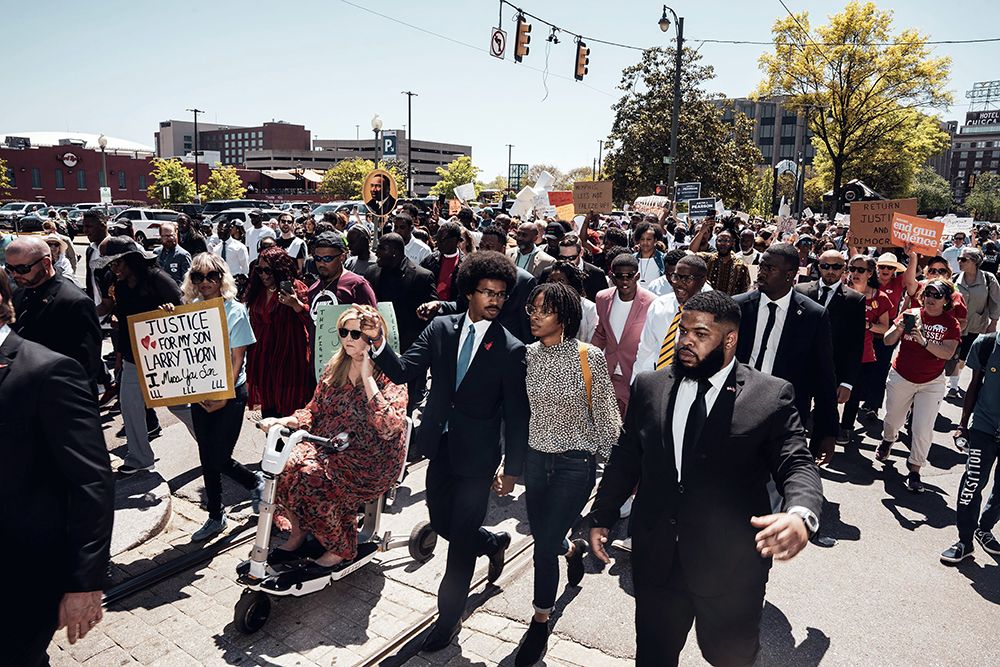On July 27, 2023, the Department of Justice opened a civil rights investigation of the Memphis Police Department. Although the investigation comes six months after the beating death of Tyre Nichols at the hands of the MPD, U.S. Assistant Attorney General Kristen Clarke said the investigation was not prompted by any single incident, but rather by multiple reports of violence and racism which suggested fundamental problems with the department’s standards and practices.
“It can’t be overstated how important it is, and what a critical opportunity this is for our community,” says Josh Spickler, founder of Just City, a nonprofit devoted to criminal justice reform.
Around the same time the DOJ announced its investigation, the Tennessee Bureau of Investigation released its 2022 crime report, which breaks down all reported crimes and arrests in each jurisdiction. As reported in “What’s Wrong With The MPD?,” the previous Memphis Flyer story in this series, MPD’s 2021 clearance rate, the ratio of crimes reported to arrests made, was 22 percent. In 2022, it fell to 18 percent.
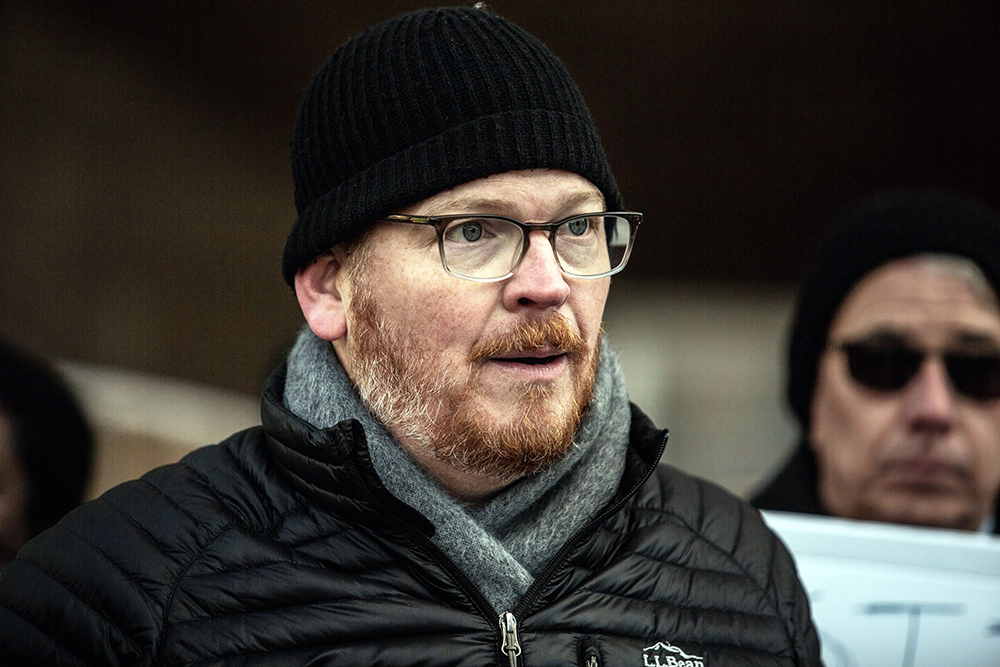
Clearance rates have been falling across the country for years. In 1960, the national clearance rate for murder was higher than 90 percent; today, that number is just over 50 percent. The Nashville Metro Police Department’s 2022 clearance rate was 25 percent.
Even so, the MPD’s ineffectiveness, as measured by their own standards, is shocking, especially given that the police department’s $284 million budget represents 39 percent of the total city budget. “If we talk about the basics of government function, which our current mayor does quite a bit, one of the basic responsibilities of a police department is to try to solve crime. Eighty-two percent of the time, they’re failing to do that,” says Spickler. “Hopefully we will have some really frank conversations about the results of the [DOJ] investigation. We have to have accountability for this police department because that’s what leads to trust. Trust leads to solving crimes, which leads to this clearance rate going up, which leads to people who commit crime and harm us being held accountable. That’s what we all ultimately want.”
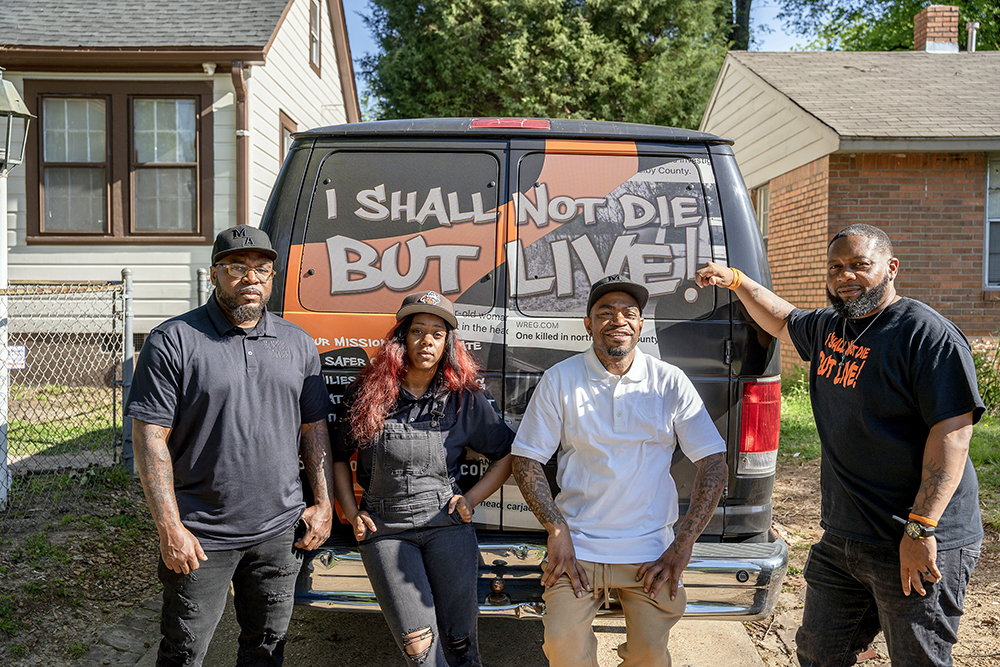
Guns Everywhere
When you talk about crime in Tennessee, guns are the elephant in the room. According to the Memphis Shelby Crime Commission, gun-related violent incidents have been climbing steadily since 2016. So far this year, gun crime is up 11 percent over 2022.
Guns are everywhere in Tennessee, and that’s how the Republican supermajority in the legislature likes it. In 2021, the Tennessee State Legislature made it legal for almost anyone to carry a firearm without a permit. After the March 2023 Covenant School shooting in Nashville, where a former student killed three children and three teachers with a legally purchased AR-15 assault rifle, a student-led protest movement urged the legislature to pass red flag laws, which would allow authorities to confiscate guns from people who are deemed dangerous to themselves or others. When Democratic state representatives Justin J. Pearson, Justin Jones, and Gloria Johnson brought the protests into the House chamber, the Republican supermajority responded by expelling Pearson and Jones, both of whom are Black. (Johnson, who is white, missed expulsion by one vote.) President Joe Biden called the expulsions “shocking, undemocratic, and without precedent.” Both Pearson and Jones were easily reelected to their seats earlier this month in time to participate in a special session called by Governor Bill Lee, ostensibly to address the state’s exploding epidemic of gun violence.
“The erosion of our protections from gun safety legislation has led to a direct increase of the number of funerals of children that we go to and the number of people in our community who are being killed because of gun violence,” says Pearson. “Gun violence is the number-one killer of children because of the decisions of the Tennessee state legislature that invoked permitless carry and that have put the values of the Tennessee Firearms Association, American Firearms Association, and the National Rifle Association over the lives of people.
“We need to have more laws that protect kids, not guns,” Pearson continues. “We need laws such as extreme risk protection orders that take guns away from people who are domestically abusing their spouses. We need laws that strengthen background checks to make sure people who are getting access to guns who shouldn’t have them no longer have them. We need to be able to track where these guns are coming from and how they are getting into our community. Memphis doesn’t have any gun manufacturers, yet we have this extreme amount of gun violence. We need to figure out why that is and who is proliferating and profiting off of the pain and suffering we are experiencing.”
Recent proposals before the city council would repeal permitless carry in Memphis and ban the sale of assault rifles. Many assume that if these proposals passed, the Republican supermajority in the state legislature would simply preempt them. “In fact, our racist Speaker Cameron Sexton said that he was an ‘overseer’ to more progressive cities,” says Pearson. “The reality is, we are always going to be facing the issue of preemption. Our state legislators who represent Memphis and Shelby County, they’re going to have to start standing tall and speaking up and using their voices.”
Pearson says the Black communities in Tennessee are disproportionately affected by gun violence. Twelve percent of Tennesseans are Black, but they represent 38 percent of crime victims in the TBI report. “I buried a friend this year,” says Representative Pearson. “Last year, I buried a mentor who died from gun violence. This is not normal.”
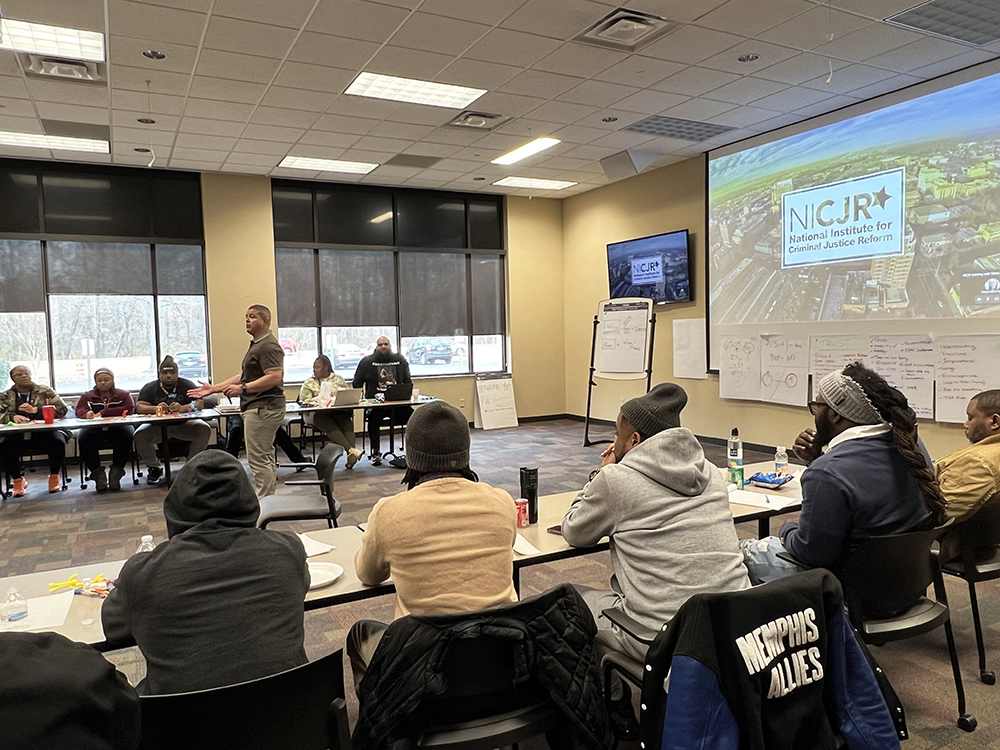
What Won’t Work
Is the solution to Memphis’ crime problem simply to hire more police officers? “There is evidence that the presence of police has an impact on crime, which feeds this [faulty] argument that we just need more of ’em,” says Spickler.
While people are less likely to commit crime in the presence of a police officer, the assumption that a bigger police department leads to safer communities does not hold up to scientific scrutiny. A meta study published in the August 2016 Journal of Experimental Criminology collected all available data about police force size and crime rates from 1968 to 2013. The researchers found that “The overall effect size for police force size on crime is negative, small, and not statistically significant,” and that “Changing policing strategy is likely to have a greater impact on crime than adding more police.”
A just-published report from Catalyst California and ACLU of Southern California crunched data on sheriff’s offices throughout their state. “A common, long-held belief is that communities need to greatly invest in law enforcement — rather than other potential safety solutions — to prevent serious violence from occurring,” the authors wrote. “This ‘tough on crime’ approach views law enforcement as the primary (if not sole) solution to protect community members from heinous harms like homicide, robbery, and assault. It presumes that law enforcement agencies significantly focus their efforts on responding to calls for help (e.g. 911) from community members in imminent danger, and that their actions are an effective means of harm prevention.”
Instead, the study found that California sheriff’s departments spent very little time actually responding to calls for help. In Los Angeles County, only 11 percent of deputies’ time was spent on “service calls.” The rest of the time was spent on traffic stops, two-thirds of which were non-moving violations used as a pretext to search for drugs and weapons.
While this study did not cover Tennessee, it is consistent with a larger pattern in modern policing. The incident that ended in Tyre Nichols’ death began as a pretextual traffic stop by the MPD’s SCORPION unit. “The reality is that things like ‘jump out squads’ have been happening in communities, especially poor communities of color, for generations,” says Spickler.
“Fundamentally, we have to rethink the Memphis Police Department,” he says. “I think that it needs to be replaced with something broader than a police department — something more along the lines of an office of public safety that includes not just armed people in cars patrolling, but also people who can be responsive to some of the drivers of what people think of as crime but are really more nuisances or public health issues.
“Administrative things like traffic and car tags, mental illness, homelessness — those are all things that we can respond to in another way. It will keep us from having things like Tyre Nichols or the many, many other use-of-force incidents we’re familiar with. This department needs to essentially go away and be rebuilt and rebranded as something different than an occupying force that is out there trying desperately to do something about crime. It’s no knock on the people out there trying, wearing the badges. That’s an impossible task. Let’s give them a job that they can accomplish instead of just sending them in to fail.”
Signs of Hope
K. Durell Cowan knows the effects of injustice first hand. In 2010, his uncle died in police custody in Richmond, Virginia. In 2015, a friend asked Cowan to give him a ride. The friend had just been robbed, and Cowan says, “He ended up seeing the guy who actually robbed him that day, and [my friend] killed him. Just because I’m a big Black guy in Memphis, no one would believe that I had no involvement in the thing. I was charged with first-degree murder.”
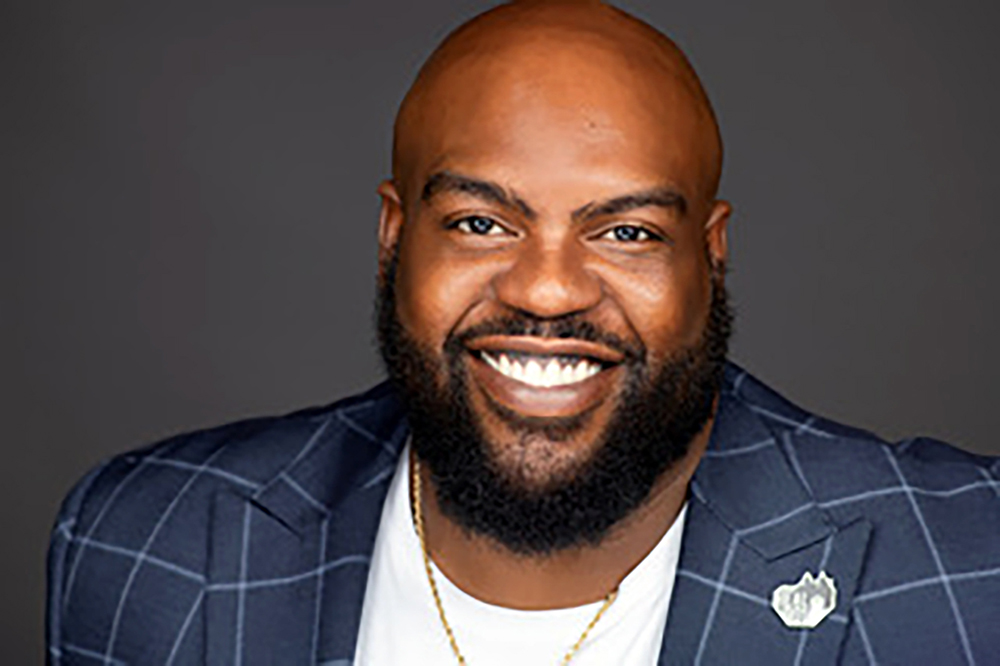
Cowan avoided serious jail time, but he lost his job as an office manager. His life in ruins, “I was admitted into two mental hospitals in Memphis. In the middle of a mental episode, a voice came to me and said, ‘If you had another chance in life, what would you do?’ … Heal 901 was created from taking my pain and turning it into power.”
Heal 901 began by feeding the homeless and bringing social services to people who could not access them. In 2019, a brawl erupted at a basketball game between Westwood High School and Fairley High School. In the aftermath, Cowan stepped in to mediate between the feuding groups. The experience inspired him to expand his conflict-resolution efforts to the streets of South Memphis. “We look at gun violence at Heal 901 as a public-health issue, understanding that guns are readily available, and that we have been desensitized when it comes to the value of life.”
Heal 901’s crew of violence interventionists are drawn from “those who have been part of the justice system,” Cowan explains. “We give them the opportunity to go and fix the same neighborhoods that some of them played a part in destroying. We work closely with the Shelby County Office of Reentry, Probation, and Parole to find qualified candidates to go out and do this work. … My staff walks into an environment where people are walking around holding AR-15s, AK-47s, long guns, short guns, extended high-capacity magazines. And they’re out there with nothing but a cell phone.”
Heal 901’s current target area is the New Horizon Apartment Complex at Winchester and Millbranch. “It doesn’t take a rocket scientist to know that when you hear loud yelling and commotion, those verbal altercations lead to physical altercations, which lead to gun violence. That’s the flow; that’s the formula. You have to interrupt as soon as you hear the chitter-chatter.”
The interventionists defuse volatile situations. “You tell them that you care about them as an individual, to take the time to help them associate themselves with reality. Like, hey, this is probably not the best move when you got children who depend on you. Gun violence is not something that takes a long time to do. It takes less than three seconds to pull a gun and pull the trigger. So you have to intervene quickly and have someone thinking of something else before they make that decision. Because it’s now to a point that people are reacting with these weapons.”
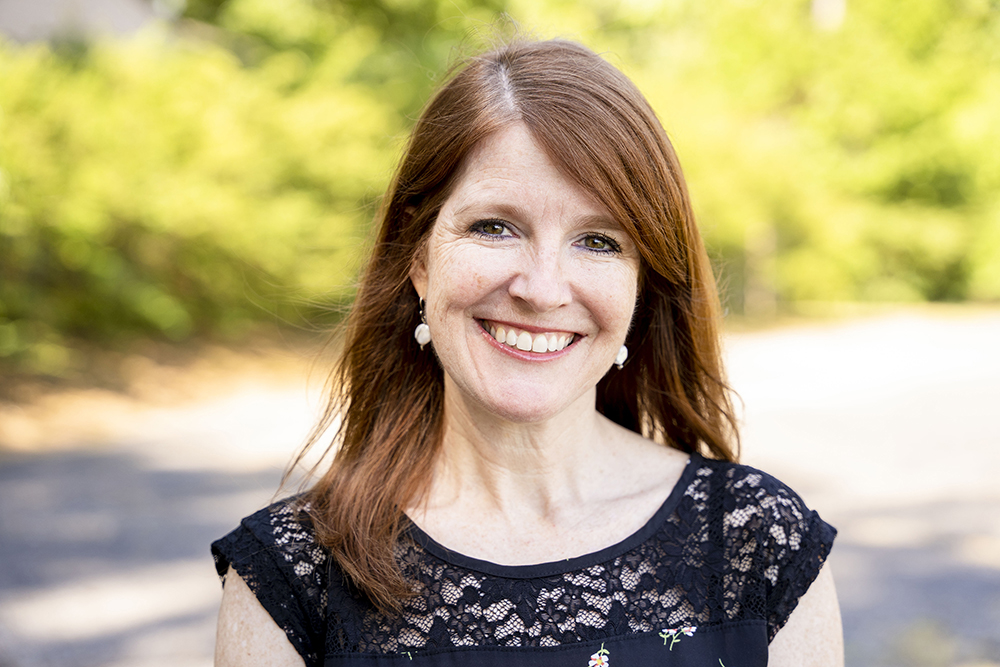
Susan Deason is executive director of Memphis Allies, an initiative that was launched by Youth Villages in 2021 to reduce gun violence in Memphis and Shelby County. She says, “This is a collaborative initiative that engages multiple other organizations in addition to Youth Villages to serve those at highest risk for involvement with gun violence and to provide services to those individuals to change the trajectory that they have been on previously.
“We serve individuals anywhere from the ages of 12 to 30 and above. There’s a few criteria we look at, and of course you also have to get to know the individual to understand their particular circumstances. But typically it would be somebody who does have an extensive history with the legal system. So they may have already received some weapons charges. They have recently, within the past 12 to 18 months, been shot or shot at. They have close friends or family members who have been recently shot or shot at. They are typically out of school or unemployed and are also typically involved in a gang or a crew.”
Deason says most people are looking for a way out of their violent circumstances. “While there are individuals who don’t need to be out on the streets based on the crime that they committed, ultimately we believe everybody needs a chance to be rehabilitated and to make different choices — and oftentimes, someone who is at highest risk and who is involved in gun violence doesn’t really know about those other opportunities, or hasn’t had somebody to help them make those changes. And it’s very difficult to make a complete lifestyle change on your own.”
Cowan agrees it’s important to help people understand they’re not alone. “It’s sad to hear adults say that they’re afraid of children, and these children are literally asking for help.”
In April 2022, Mayor Strickland appointed Jimmie H. Johnson, a 12-year MPD veteran, as the administrator for the city of Memphis’ Group Violence Intervention Program. “We’ve contracted with 901 Bloc Squad as our street intervention team, and they have staffed up to approximately 100 individuals,” Johnson says. “They are mainly out there in the neighborhood, staying abreast of what’s going on between groups, keeping street beefs down to a minimum. We have approximately eight hospital interventionists that are assigned to and at the disposal of Regional One, and we’re soon to be in Methodist North Hospital. We want to expand to every hospital in the city.”
Johnson’s “credible messengers” talk to people with fresh gunshot wounds. “When somebody’s being transported to the hospital, you have to go to them and say, ‘We’d like to stop this cycle of violence. We wanna help you.’”
Root Causes
Throughout history, crime and violence have always been associated with poverty. It’s no coincidence that the American cities with the highest crime rates, including Detroit, St. Louis, Baltimore, and Memphis, are among the country’s poorest cities. According to the University of Memphis’ 2022 Memphis Poverty Fact Sheet, 23 percent of Memphians live below the poverty level, 10 points higher than the national average. Thirty-three percent of Memphis’ children are impoverished, almost double the national average of 17 percent. “The most important thing that we can do to deal with gun violence and gun violence prevention is to deal with the issue of poverty,” says Pearson. “If we don’t address root causes of economic inequality and racial injustice in Memphis and Shelby County in Tennessee, then these types of issues like gun violence are going to continuously be entrenched in policies and practices of the legislature and of people in positions of power.”
While there are signs of hope on the poverty front, restoring the community’s trust in policing will be a long, painstaking process. “It’s not one switch that we just haven’t found yet,” says Spickler. “One day, we can get to a trust place again, but it ain’t gonna be anytime soon until we deal with the past and plot a course for the future.”
